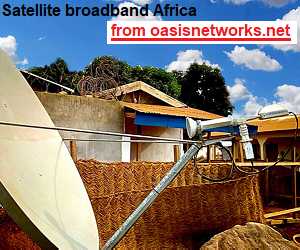| Home Login Register |
| Satellite Internet forum › iDirect Forum: hubs and terminals › Sudden Tx power reduction |
|
Pages: 1
|
Sudden Tx power reduction(Read 3247 times) |
|
Ezek
Member
★★ Offline Posts: 2 Kenya |
Oct 24th, 2012 at 7:24am
|
| Back to top |
IP Logged
|
|
Eric Johnston
Senior Member
★★★ Offline Posts: 2109 |
Reply #1 - Oct 24th, 2012 at 4:19pm
|
| Back to top |
« Last Edit: Oct 25th, 2012 at 7:46pm by Admin1 »
IP Logged
|
|
Ezek
Member
★★ Offline Posts: 2 Kenya |
Reply #2 - Oct 26th, 2012 at 12:49pm
|
| Back to top |
IP Logged
|
|
Eric Johnston
Senior Member
★★★ Offline Posts: 2109 |
Reply #3 - Oct 26th, 2012 at 2:55pm
|
| Back to top |
« Last Edit: Oct 26th, 2012 at 10:18pm by Admin1 »
IP Logged
|
|
Pages: 1
|
Email me: eric@satsig.net
Powered by YaBB 2.5.2!
YaBB Forum Software © 2000-. All Rights Reserved.
Disclaimer, Terms of Use and Privacy Forum User Agreement Forum rules Cookie policy.


